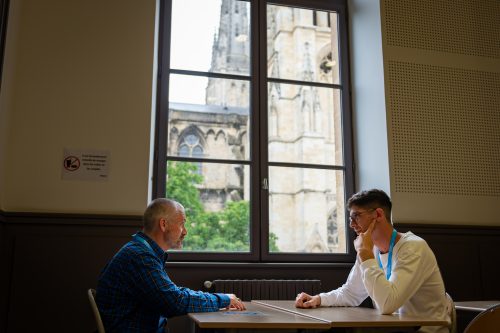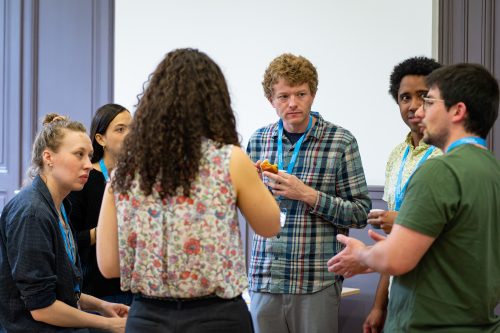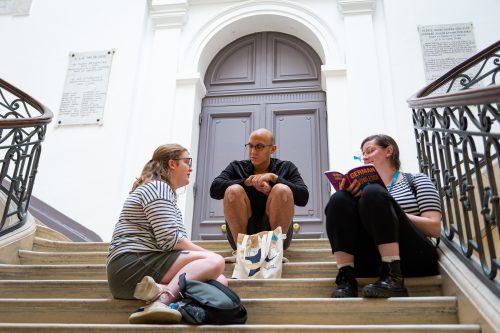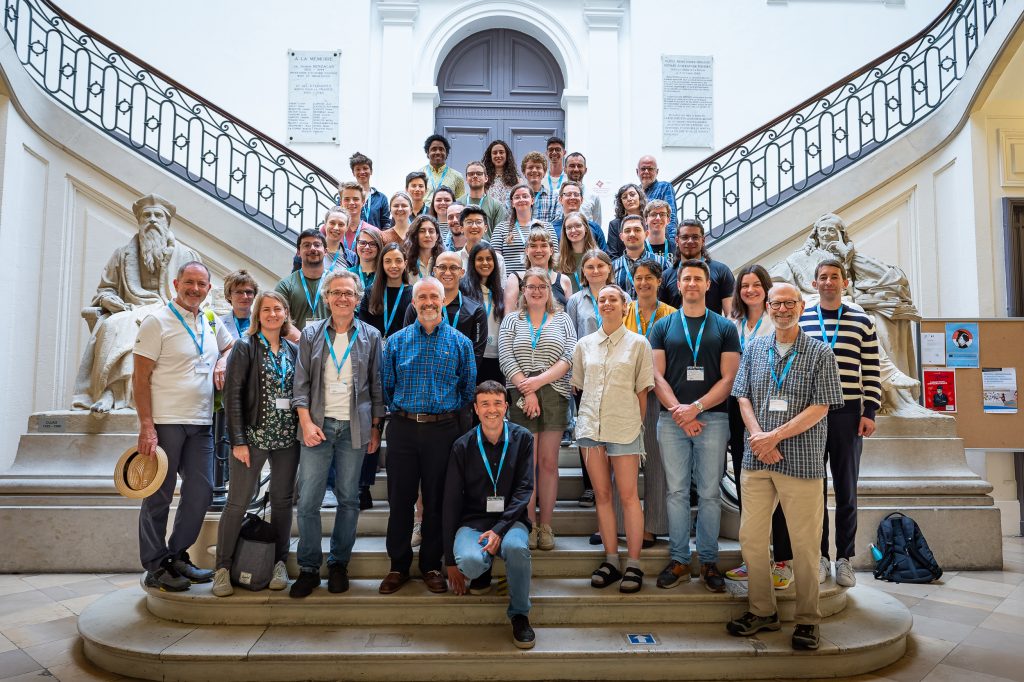The PhilinBioMed Summer School took place in Bordeaux from June 7 to 10. It brought together 36 participants from different backgrounds (from philosophy as well as from different areas of science and medicine), and at different levels (Master, PhD, Postdoc). Unlike the 2019 edition, which was centered around questions related to the microbiota, the latest summer school did not focus on any specific theme. Instead, its aim was to introduce, discuss, and apply the Philosophy in Science (PinS) approach in the context of life sciences.
The program included talks by distinguished philosophers (Alan Love, Angela Potochnik, Elliott Sober, Paul Griffiths, and Lucie Laplane) who had the opportunity to discuss work they did in collaboration with scientists. An inverse perspective was provided in a series of “PinS Experience” sessions in which scientists from the Bordeaux region shared their experiences working with philosophers. In addition, there were several instructive talks by the organizers, for example, on the basic features of the PinS approach and on practical challenges that can arise in collaborations between scientists and philosophers.
An important part of the summer school consisted of a group activity in which participants were asked to simulate the PinS approach by working on a small project, which they presented on the last day of the summer school. During this activity, it became clear how difficult it is to find a relevant scientific question that can be meaningfully addressed using philosophical tools (especially over a short period). In the end, however, all groups achieved very interesting results and the diversity of their presentations, both in form and content, was extremely impressive.



Moreover, the summer school provided ample space for critical discussions about PinS and the challenges associated with this approach. For example, it was emphasized several times that collaboration requires the development of a common language. For the philosophers, this means that appropriate interaction with the respective scientific culture is of central importance, which goes beyond textbook knowledge and includes, for example, participation in lab meetings or even learning some of the basic experimental techniques of the field. Participants were also interested in questions related to career choice. Should one start early with a philosophy in science approach, or would it be better to first develop a clear profile in a specific discipline? What kind of audience should one target and in which journals should one publish? Of course, there are no blanket answers to these questions, but it was interesting to see the variety of options and possible paths.
Overall, the summer school showed that there is a great interest among young researchers in collaborations between scientists and philosophers. Philosophy in science is one way to approach such collaborations, but the discussion about how it can best be implemented and how it relates to other interdisciplinary approaches will continue.

Photos by Gautier Dufau (University of Bordeaux). Facebook/Instagram: @gdphotosbordeaux, Twitter: @gdphotosbdx.
Our guest speakers interview their scientific collaborators
In preparation for the summer school, we asked our guest speakers to talk to their collaborators, so that participants could also get an idea of the scientists’ perspective.
Paul Griffiths talks to Josh Christie
Josh Christie is an evolutionary biologist who currently works as a data scientist at Nautilus.
Alan Love talks to Günter Wagner
Günter Wagner is Professor of Ecology and Evolutionary biology at Yale University (https://medicine.yale.edu/profile/gunter_wagner/).
Angela Potochnik talks to Brian McGill
Brian McGill is Professor of Biological Science at the University of Maine (http://www.brianmcgill.org/).
Elliott Sober talks to Michael Steel
Michael Steel is Professor of Mathematics and Statistics at the University of Canterbury, New Zealand (https://www.math.canterbury.ac.nz/~m.steel/).
Elliott Sober talks to David Sloan Wilson
David Sloan Wilson is SUNY Distinguished Professor of Biology and Anthropology at Binghamton University (https://evolution-institute.org/profile/david-sloan-wilson/).
